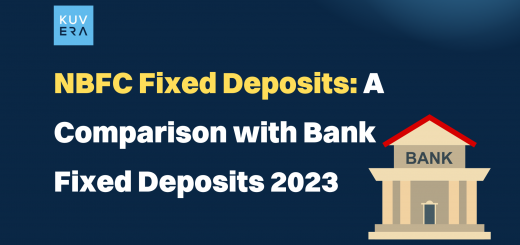When it comes to investing your money, fixed deposits (FDs) and term deposits offer stability and assured returns. In this blog, we will explore the differences between fixed deposits and term deposits to help you make an informed decision based on your financial goals and preferences.
1) Definition
Fixed Deposits
A fixed deposit is a financial instrument where you deposit a specific amount of money with a bank or financial institution for a predetermined period at a fixed interest rate.
Term Deposits
Term deposits, also known as time deposits, are similar to fixed deposits. In a term deposit, you invest a specific sum of money for a predetermined period at an agreed-upon interest rate.
2) Interest Rates
Fixed Deposits
Fixed deposits interest rates are fixed, which remains constant throughout the deposit tenure. This stability ensures predictable returns.
You can calculate the returns your fixed deposit offers very easily through fixed deposit interest calculator.
Term Deposits
Term deposits may provide both fixed and variable interest rates. Some term deposits offer a fixed rate for the entire tenure, while others have a variable rate based on market conditions.
3) Tenure
Fixed Deposits
Fixed deposits have a predetermined tenure ranging from a few months to several years. Premature withdrawals may be subject to penalties or reduced interest rates.
Term Deposits
Term deposits also have a specific tenure, varying from weeks to years. Early withdrawals from term deposits may incur penalties or lower interest rates.
4) Flexibility
Fixed Deposits
Fixed deposits are less flexible, and premature withdrawals may result in penalties or loss of interest earnings.
Term Deposits
Term deposits offer more flexibility, allowing for withdrawals before maturity, although certain restrictions or penalties may apply.
5) Interest Payouts
Fixed Deposits
Interest payouts in fixed deposits can be received periodically (monthly, quarterly, or annually) or at maturity, depending on your preference.
Term Deposits
Term deposits offer options for interest payouts, including periodic payments or receiving interest at maturity.
Most popular FDs in India
Here are the most popular fixed deposits available in India and their latest interest rates:
- Bajaj Finance FD interest rates
- Shriram Finance FD interest rates
- Axis bank FD interest rates
- HDFC bank FD interest rates
- SBI FD interest rates
- ICICI Bank FD interest rates
Conclusion
In conclusion, term deposits, fixed deposits, and time deposits all function similarly and offer higher interest rates compared to regular savings accounts. While term deposits provide an opportunity for faster growth of your money, there may be penalties for early withdrawals.
Time deposits, also known as fixed-term interest-bearing accounts, allow depositors to earn better interest rates and choose to withdraw or reinvest their funds upon maturity. Short-term deposits have a shorter lock-in period compared to long-term fixed deposits.
While it is possible to withdraw funds from term deposits, penalties and reduced interest returns may apply. Understanding these distinctions can help individuals make informed decisions about their savings and investments.
Interested in how we think about the markets?
Read more: Zen And The Art Of Investing
Watch/hear on YouTube:
Start investing through a platform that brings goal planning and investing to your fingertips. Visit kuvera.in to discover Direct Plans and Fixed Deposits and start investing today.
#MutualFundSahiHai #KuveraSabseSahiHai! #PersonalFinance











